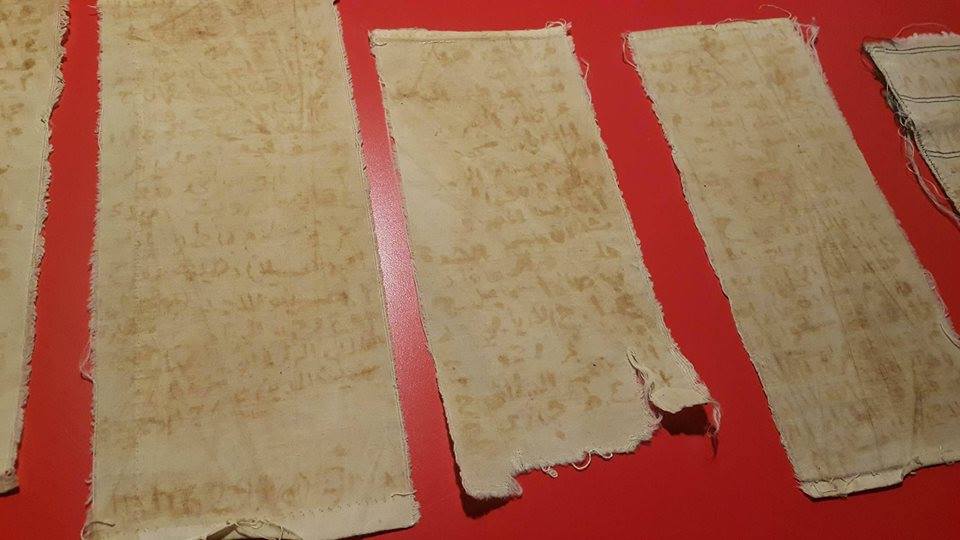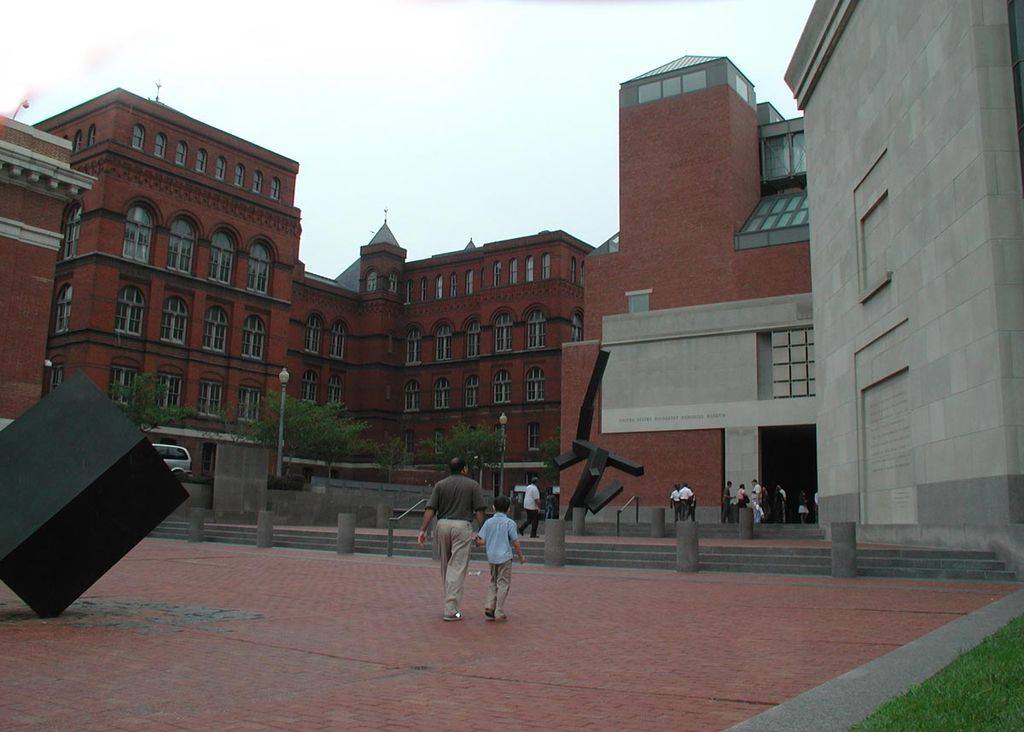By Fris Rifai
(Zaman Al Wasl)- With chicken bones soaked with blood and rust c, a number of regime detainees in the Fourth Brigade prison have written the names of their comrades on a piece of old t-shirt cloth.
The human rights activist and former detainee, Mansur al-Omari smuggled the piece of cloth to exhibit it later in to the US Holocaust Museum in Washington as proof of the conditions of Syrian detainees in the prisons and detention centers of the regime.
Al-Omari, 37, who lives in the Swedish city of Gotland, told Zaman al-Wasl that he was arrested by Syrian intelligence agents along with a number of activists of the Syrian Center for Media and Freedom of Expression with director Mazen Darwish on 16 February 2012. He spent 10 months of detention underground in the 4th Brigade, and the rest in the Air Force Intelligence Branch at Al-Mezzeh Airport where he was subjected to torture and almost daily electric shock.

Al-Omari said that he wrote with other five detainees in 2012 the names of their other comrades using a shirt for one of them using blood and rust to write it.
The detainee Manaf Abazid took the task of collecting it. The journalist who later died under torture, Nabil Sharbaji wrote the names with his hand. Al-Omari managed to smuggle them secretly in the folds of his shirt from the detention of the fourth division, and took them to Sweden.
He added that he loaned it Wednesday to the Holocaust Museum in Washington to be presented to the American public as a living testimony to the suffering of detainees of horrors, torture and inhumane conditions.
He pointed out that the presentation of this document is part of a series of events in Washington to highlight the issue of detainees and to meet with US decision makers and deliver the voice of detainees to members of Congress and Senate .
Al-Omari pointed out that individual stories usually have more impact than figures, statistics and news naked before world public opinion."
"The humanization of the story brings it closer to the public and makes it easier to understand the suffering," he said, adding that he is currently recording his entire experience in prison to be published as a documentary.

Al-Omari, who took over the file of the detainees at the Syrian Center for Media and Freedom of Expression, said that he believes that this document, woven with blood and pain, which includes the names of 82 detainees, will play a role in enlightening the world, especially American society.
He expressed his hope that this document and other activities on the international level in dealing with the issue of detainees will change and they may declare it an urgent humanitarian situation, which will change the strategy of dealing with it completely.
The Holocaust Museum, known as the USHMM, is a memorial museum located in the Columbia area of Washington DC to commemorate the Holocaust and other old and new issues.
















Comments About This Article
Please fill the fields below.